Pula: my Erasmus destination and second home
Hi, everyone!
In my first post, I already spoke to you a little about my experience in Pula, answering some of the most common questions for those who want to go to this Erasmus city. Now, I am going to go more in depth and tell you about everything I have discovered and learnt about Pula during the year that I lived there.
Pula is a coastal city in Croatia, situated in the south of the Istria peninsula, in the North of the country. It is true that it isn't one of the most well-known areas in Croatia, but this makes it a surprising and special place.
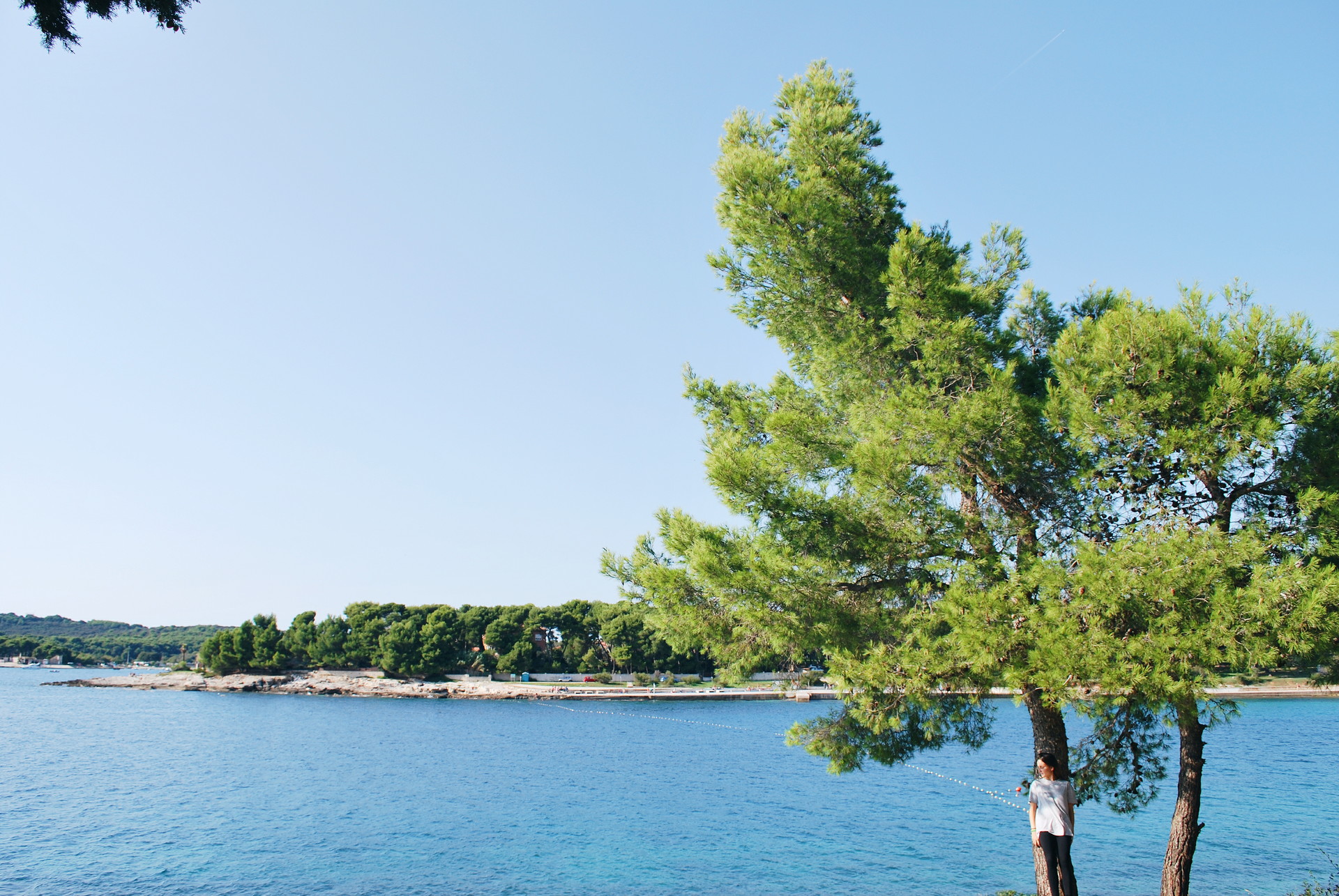
Weather
Croatia is an incredible country for many reasons and one of those is its climate. During the winter it doesn't rain that much and it is cold, but bearable. For us, it snowed one day, but it was very strange because according to what the locals told us, this hadn't occurred for around 30 years.
And as for the summer, for us it started in April, so you can imagine... A godsend, we went to the beach every day from April until we left Croatia. It was one of the few summers were I actually managed to get brown, and that says it all. Also, the heat isn't stiffling, perfect for sunbathing, going around in light clothes, etc, but without being suffocating.
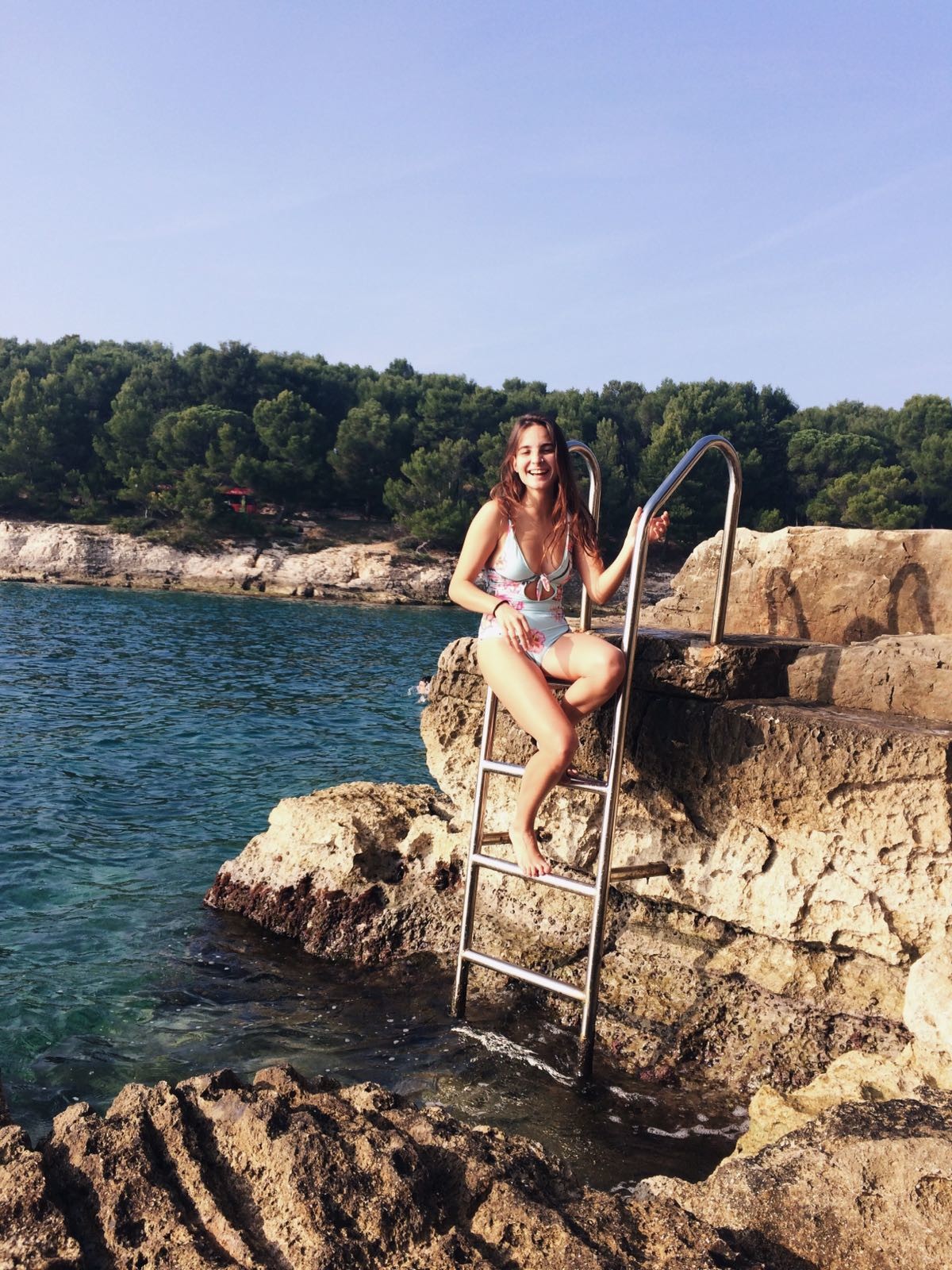
In my opinion, the city has a perfect climate. Particularly in the months of March and April, it is lovely to go for a walk through the city and it is the perfect season to enjoy it and its beaches, since the majority of tourists still haven't come.
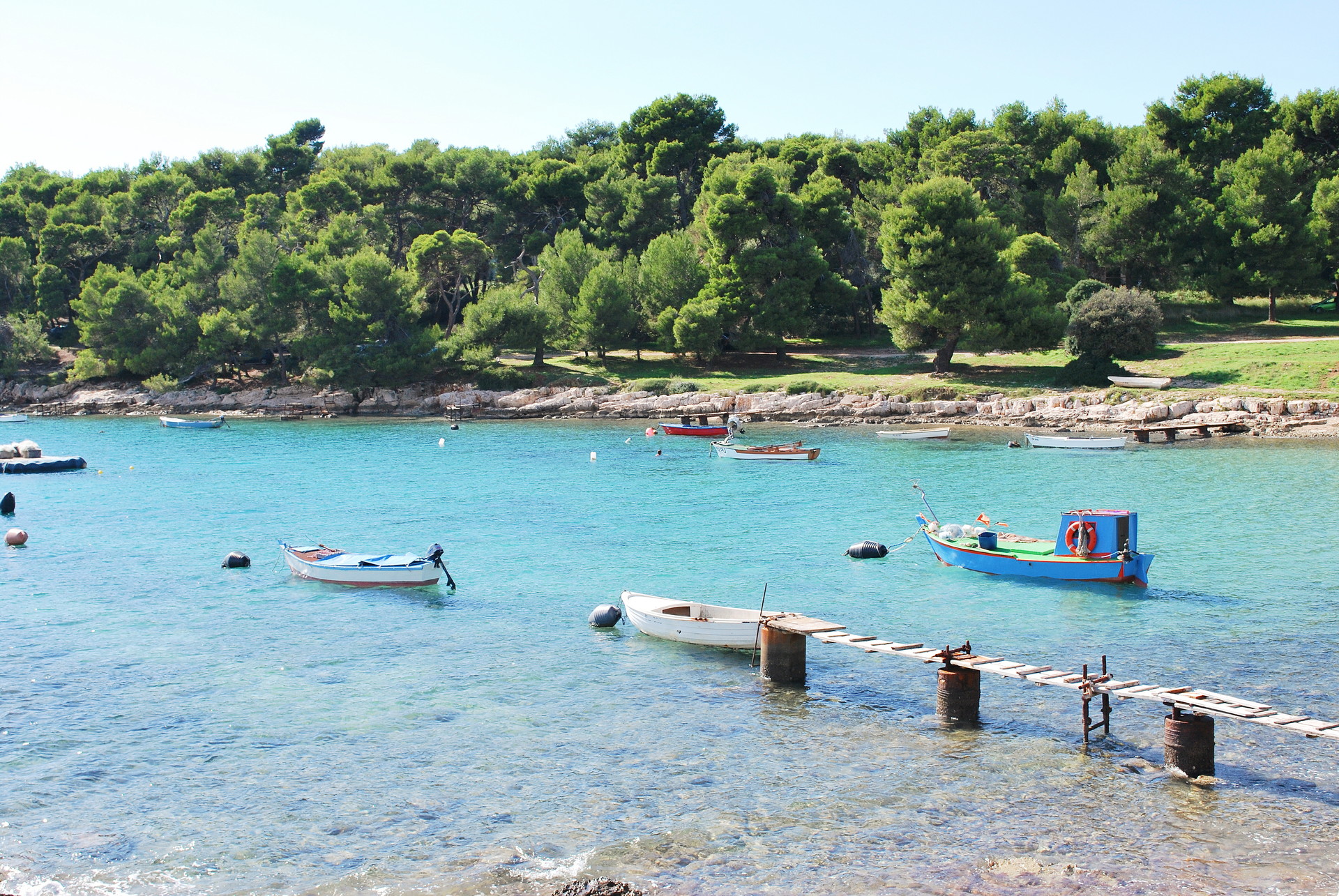
Tourism
As for tourism, the truth is that right when I left Pula was the time that the high tourist season was starting, at the end of June. During autumn and winter you don't notice tourists as much, sometimes you will see some visiting tourist attractions such as the Roman fort or the Sergio Arc, but not too many.
It was in May when there started to be more and the streets were a lot busier. But to be honest, the city is generally very calm all year round, bar in the summer.
Italian influence
It is an area which is very close to the Italian border, and this is why the Italian culture is very prominent in this area. In fact, most of the signs, posters, etc are written in Croatian and Italian.
As for the food, it is also very easy to appreciate the influence since there are an infinity of Italian restaurants where you can eat delicious pizza or pasta.
Even a big part of the population knows how to speak perfect Italian, which shows how some of the Croatians that we knew in the city were actually Italian and who had come to live in Pula. You can also appreciate the buildings in the historic quarter, which kind of remind you of some Italian cities.
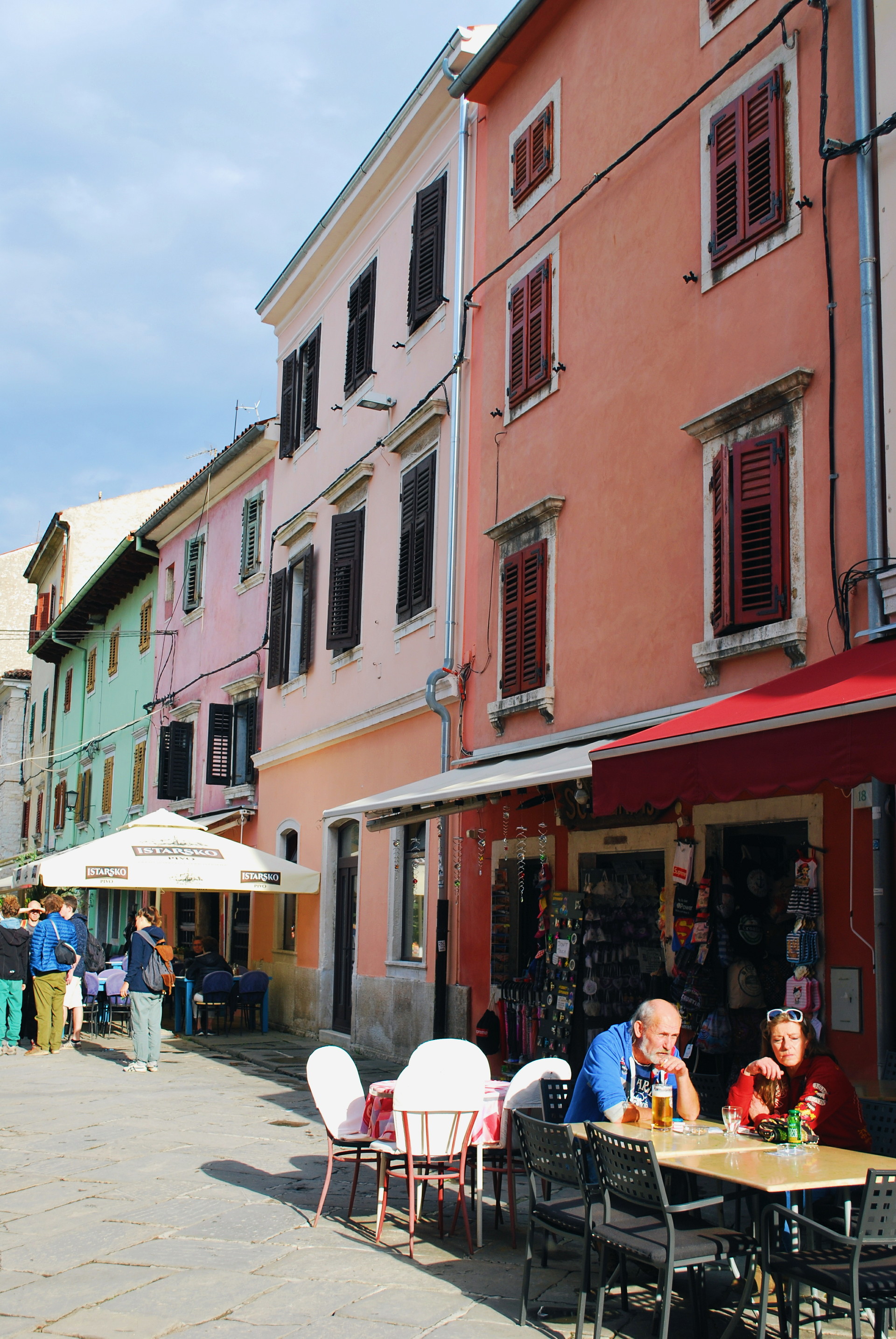
Language
Speaking of languages, the official language that they speak in Croatia is Croatian. As I said, a big part of the population also know how to speak Italian.
But something that surprised me in Pula were the amount of people who were also able to speak with us in English. And it is because a lot of times due to misinformation, we have this image that Croatia and other Balkan countries are quite a lot less developed than Spain, for example, but having been there I realised that there are not as many differences between us as they would leave you to believe.
In fact, as I said, the language at least gave us quite a big advantage. It wasn't at all difficult to find people that could reply to me in English, whether in a bakery, a bus station, a bar, in the street... In any area and having the age that they have; since even a lot of the people that I came across who were older than 65 who I tried to communicate with knew how to answer me, even though they had a limited vocabulary.
Currency: Kuna
Another important fact about Croatia is their currency, since they don't use the euro, even though it is predicted that they will introduce it in the upcoming years. Instead of this, they use the Kuna (HRK), which one Kuna is equivalent to 13 cents. So, 1 euro is 7 kunas.
Maybe for those who are going to spend a couple of days or weeks in Pula or another Croatian city on holiday it could be a little hard to figure out at the start, but at least in my case, in a few weeks we got used to using it without any problems.
To exchange your money there are lots of exchange shops all over the city, practically in every corner. Its the same thing in the other touristy cities in Croatia. In some shops the exchange rate is better than in others, so it is always better to look around so that you don't miss out.
If you take money out of the bank, the most likely thing is that they will charge you commission, so the best thing to do is to go with quite a lot of money which is already in cash, so that you don't lose two euros (or however much it is) each time that you want to take money out of the cashpoint.
The prices
In general, prices in Croatia are a little lower than they are in Spain, but there is not a big difference. Depending on the product, you notice the difference more or less. For example, if you have a coffee the price is the same, in fact, if you have one in a more touristy area, it will probably be more expensive. But for products that you can buy in a supermarket, the prices of some products are a little lower.
As for living, the prices are quite cheap. They are more or less the same than they are in Spain for a small city that isn't too expensive, such as Ourense, which is where I currently study; where the prices are more or less the same.
It is quite easy to find flats to rent, especially for two or three people, and most of them are quite new. However, this is if you look in advance and not in the summer period, which is when all the tourists come and there is a high demand. In fact, most of the flats are rented during the academic year, but in June and sometimes even beforehand, they are usually unoccupied to be able to rent them to tourists.
Also, in our case for example, our flat was located next to the university so not that close to the centre. However, it is very convenient living in Pula because everything is more or less nearby. We only had to walk for around 15 minutes to get to the centre.
Living in Pula
Pula is a perfect city to live in. As well as its good climate and incredible culture heritage, it is a coastal city so for those people who are like me where the sea is an essential element; it is perfect.
It is true that in the centre, despite there being a route along the coast, there are no beaches. What you can see is a port with lots of boats docked there, a factory and some interesting cranes which light up in different colours at night, adding a special touch to the nightime views of the sea.
Anyway, don't worry, because the beaches aren't too far away. We always went by foot to some of the closest ones, such as the one in Lungomare, and it took us about 30 minutes walking from the centre. There are also several buses which go from the centre to the different beaches in the area.
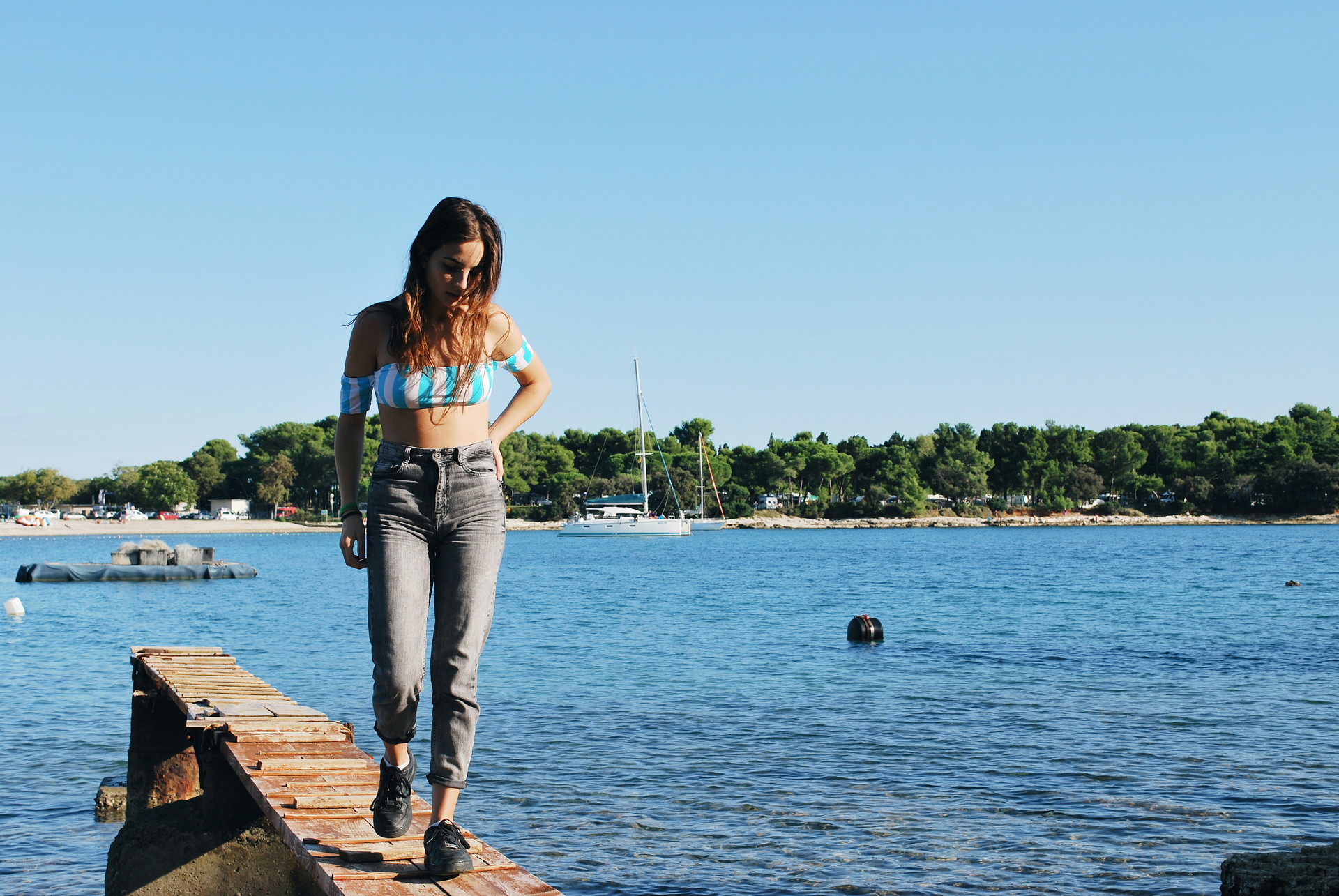
When we do a food shop, there are quite a lot of supermarkets all over the city centre. You have to be careful because sometimes they ones that are nearby to the more touristy areas have higher prices.
I have already said this when I answered some questions about Pula, but these supermarkets in the centre are quite small, so they have quite basic products and not much variety in terms of fruit and vegetables. In my case, I always get loads of vegetables, so normally I went to a different supermarket further away from the centre such as a Spar, which was around a 20 to 25 minute walk away. In reality, it is what we all usually did when we were doing our big shop, but the journey back home weighed down with all of the bags was quite hard.
My first weeks in Pula
As I told you, I was in this incredible city for a year of Erasmus, but the truth is that I travelled to Pula around 2 weeks before the university classes started, with the intention of finding an apartment to live in.
Experience in the Hostel Antique
Therefore, the first two weeks I stayed in a hostel, the Hostel Antique. It was my first time travelling alone and also my first time staying in a hostel. I specifically decided to stay for a few weeks there instead of an apartment because I wanted to get to know new people before all the Erasmus students got there.
And that was how it was, so maybe this will work for all of those people who might have some qualms about going to a hostel alone. The truth is that at the start, I also thought that I wasn't going to like being in a hostel, since at the end of the day you don't have much privacy, etc... but I ended up loving it.
I have to say that this wasn't any old hostel because the facilities are very new, clean and in general both the rooms and the common areas are great. I shared my room with a boy from Paraguay and a girl from Croatia. I made good friends with them both and they ended up being my travel companions for the whole day. With the Paraguayan, I discovered a boy who was dedicated to travelling from one side of Europe to the other, but he had also already visited several Asian countries. He was one of those person who moves with the wind and doesn't stay still anywhere. He taught me so many things, as did the Croatian girl who I also shared the room with.
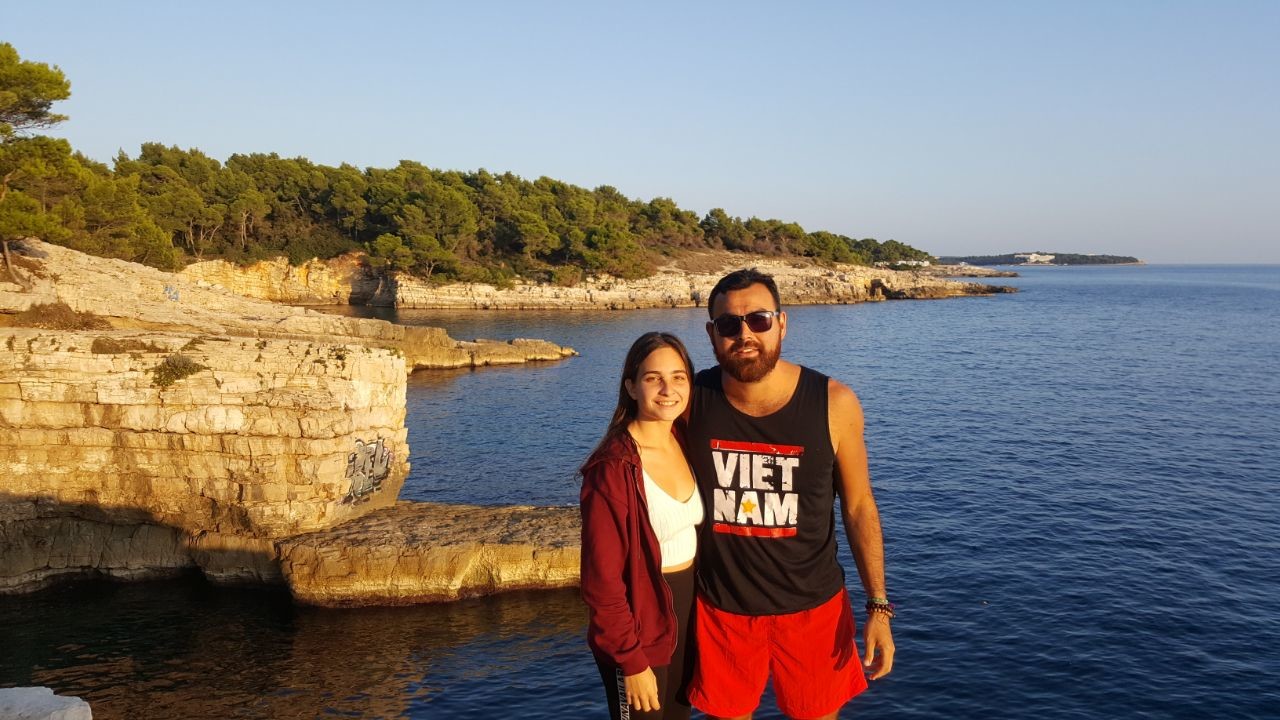
We even ended up becoming good friends with the hotel staff. In fact, even after going to live in a different apartment with other Erasmus students, I still kept in contact with them and I introduced them to my new housemates. They ended up being really good friends too and sometimes we all did things together.
Thus, I think it is a really good idea to try travelling alone at least once in your life since it allows you to meet lots more people and travel in a completely different way. In fact, in my case, it was thanks to my Paraguayan friend that I discovered lots of places in Pula that I will talk to you about. He loved investigating and finding new places that weren't tourist hotspots.
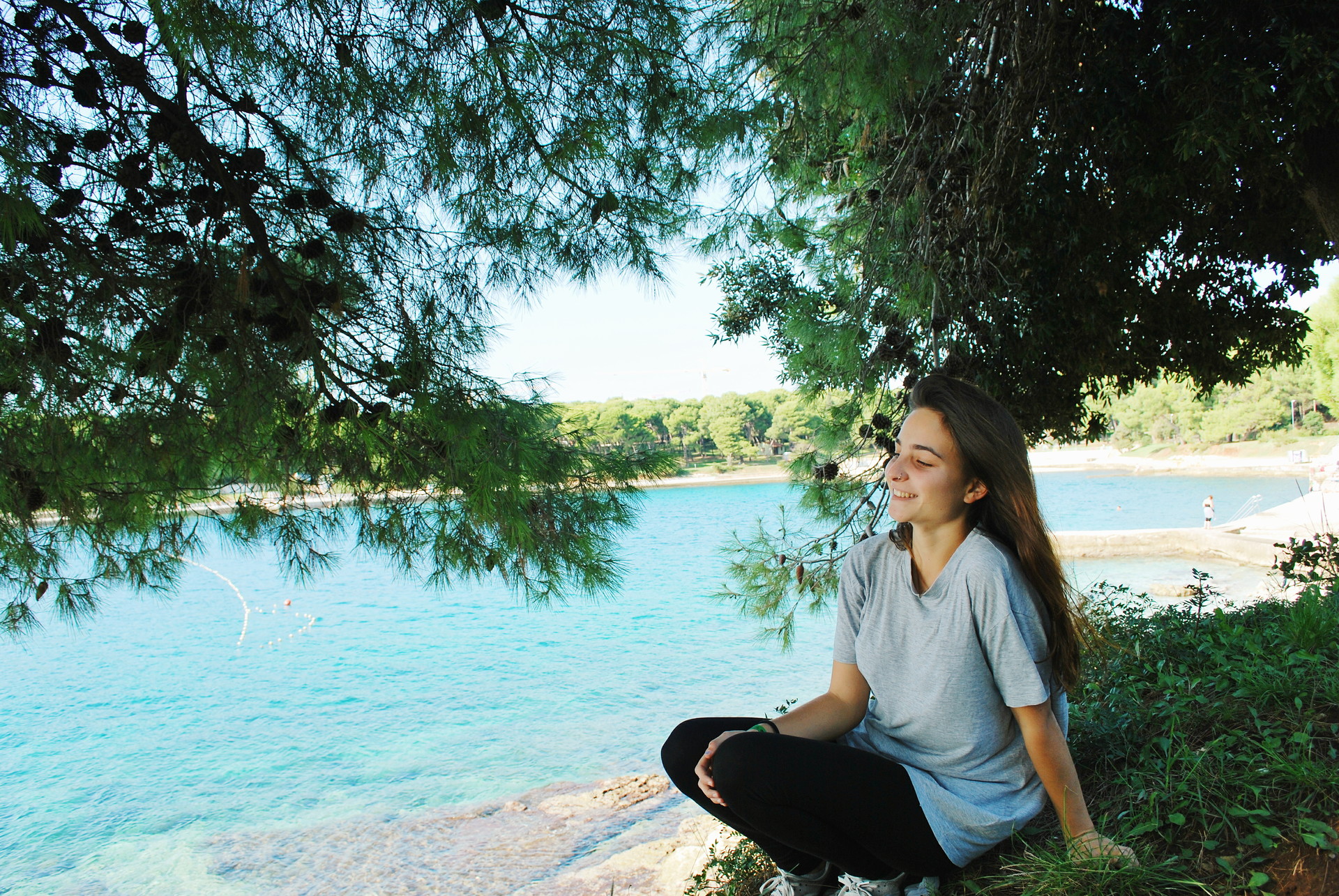
That has been everything for now. Soon I will tell you a lot more about Pula, such as the most interesting places to see in the city.
Thank you once again for reading!
Photo gallery
Content available in other languages
Want to have your own Erasmus blog?
If you are experiencing living abroad, you're an avid traveller or want to promote the city where you live... create your own blog and share your adventures!
I want to create my Erasmus blog! →






















Comments (0 comments)